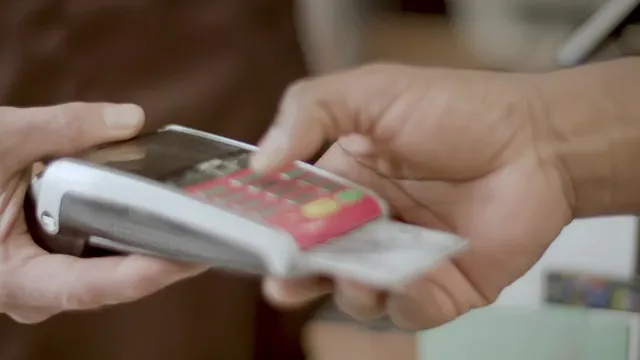
Why Do Lots of Companies Not Allow Prepaid Cards?
Introduction
Prepaid cards have surged in popularity lately. They offer a convenient payment option for many consumers. Yet, an increasing number of companies refuse to accept them. This raises an important question: why do many companies avoid prepaid cards?
One thing that can make your financial life easier is a Prepaid Visa Gift Card. It’s a great way to manage your spending without the risks associated with credit cards. Plus, who doesn’t love the flexibility of gifting or using it for personal expenses? It’s a win-win!
Summary and Overview
The rise of prepaid cards reflects their numerous benefits for users. They allow individuals to manage budgets effectively and provide an option for those without traditional banking services. However, companies often hesitate to accept these cards. Key concerns include potential fraud and complicated fee structures associated with prepaid cards. This article will unpack these reasons in detail, exploring the challenges businesses face.
Speaking of managing budgets, consider using a Budget Planner Notebook. It can help you stay on top of your finances and avoid the pitfalls of overspending. Trust me, your wallet will thank you!

Reasons Companies Do Not Accept Prepaid Cards
1. Fraud Prevention
Prepaid cards are frequently linked to fraudulent activities. They can be easily used for illicit transactions. Statistics reveal that fraudulent transactions involving prepaid cards are on the rise. A significant percentage of these transactions raises alarms for businesses.
Moreover, there is a thriving black market for stolen prepaid cards. This market creates additional risks for companies. Merchants must protect themselves from potential losses linked to these cards. As a result, many businesses choose to avoid accepting them altogether.

2. High Fees and Costs
Prepaid cards often come with a range of fees that can catch users off guard. These fees include activation charges, monthly maintenance fees, and transaction costs. For instance, some cards charge fees every time you use them, whether for purchases or ATM withdrawals.
In contrast, traditional payment methods, like debit or credit cards, typically have lower or no fees associated with usage. This difference can make prepaid cards seem less appealing.
If you want to avoid those hidden fees, consider a Mastercard Prepaid Debit Card. They often come with fewer fees and are widely accepted, making them a great alternative for managing your expenses.

3. Consumer Protections and Regulations
Prepaid cards lack the robust regulatory protections found with credit and debit cards. This absence of protection leaves consumers more vulnerable to fraud. Unlike traditional cards, prepaid card users often face greater risks with unauthorized charges.
For businesses, this situation poses significant implications. Companies could face reputational damage if customers experience issues with their prepaid cards. Additionally, navigating the limited protections can lead to complex liability issues.
If you’re looking to enhance your financial literacy, check out the insightful Financial Literacy Book. It can provide you with the knowledge you need to navigate the complexities of personal finance.

4. Limited Acceptance and Compatibility
Not all merchants accept prepaid cards, creating inconsistencies for users. This limitation can lead to frustration, particularly when consumers attempt to make essential purchases or travel arrangements.
In industries like travel and hospitality, prepaid cards can face compatibility issues. For example, renting a car or booking a hotel may require a credit card instead of a prepaid option, limiting consumer choices.
If you’re a frequent traveler, consider investing in a reliable Travel Backpack. It will make your journeys more comfortable and organized, ensuring you have everything you need at your fingertips.

5. Administrative Challenges
Handling prepaid card transactions can be a nightmare for managers. There’s a lot of extra work involved. Tracking these transactions requires more attention than traditional methods. Companies have to implement new procedures just to accommodate them. This added complexity can overwhelm staff, especially in smaller businesses.
Moreover, accounting errors become more likely with prepaid cards. Reconciliation can turn into a cumbersome task. Missing funds or discrepancies can lead to time-consuming investigations. Correcting these issues often diverts staff from their primary responsibilities. Ultimately, this administrative burden can discourage businesses from using prepaid cards.

6. Risk of Chargebacks and Disputes
Chargebacks pose a significant risk with prepaid cards. When a customer disputes a transaction, it can create chaos for businesses. The process of managing chargebacks can be complex and lengthy. Companies may find themselves spending resources to resolve these issues.
Furthermore, the nature of prepaid cards complicates financial management. Since these cards are often used anonymously, tracking down fraudulent transactions becomes difficult. This can lead to significant financial losses. Businesses prefer payment methods that are easier to manage and control.

7. Consumer Behavior and Preferences
Consumer preferences also play a role in the acceptance of prepaid cards. Many customers feel more comfortable using traditional payment methods. Credit and debit cards have a long-standing reputation and familiarity. For businesses, this means sticking with what customers know best.
Additionally, prepaid cards might not provide the same level of trust. Consumers often worry about hidden fees and restrictions. This uncertainty can deter them from using prepaid cards, further pushing businesses to rely on more conventional payment options. Ultimately, customer familiarity drives companies to favor traditional methods over prepaid cards.

Understanding why lifestyles are important to the study of consumer behavior can help businesses adapt to consumer preferences regarding payment methods.
FAQs
Why are prepaid cards considered risky for businesses?
Prepaid cards are often linked to higher fraud rates. Many criminals use them for illicit transactions. This association makes merchants wary of accepting them. Financial losses from fraud can be significant, leading businesses to reject prepaid cards altogether.
What fees do prepaid cards typically incur?
Prepaid cards can come with various fees that surprise users. Common charges include activation fees, monthly maintenance fees, and transaction fees. For example, some cards may charge $3 to activate, plus $1 per purchase. These additional costs can quickly add up, making them less appealing for everyday use.
Are there any advantages to using prepaid cards for consumers?
Prepaid cards can offer several benefits despite their drawbacks. First, they provide an excellent budgeting tool. You can only spend what’s loaded onto the card, helping to avoid overspending. This feature is especially useful for individuals who struggle with managing their finances. Moreover, prepaid cards often do not require a credit check. This makes them accessible for those without traditional banking options. They can also serve as a safe alternative to cash, minimizing the risk of theft while allowing for easy online purchases. Additionally, many prepaid cards come with features like direct deposit for paychecks. This can be a game changer for unbanked individuals. They can receive funds directly onto their card without needing a bank account.
How do businesses handle chargebacks with prepaid cards?
Businesses face unique challenges regarding chargebacks with prepaid cards. Chargebacks occur when a customer disputes a transaction, leading to financial headaches for merchants. With prepaid cards, tracking these disputes becomes complicated. Since many prepaid cards are used anonymously, identifying the cardholder can be challenging. This anonymity can lead to increased instances of fraud. Merchants often find themselves spending time and resources managing these disputes. Additionally, the financial implications can be significant. Chargebacks can lead to lost revenue and additional fees. This situation makes businesses wary of accepting prepaid cards in the first place.
What alternatives do businesses have to prepaid cards?
Businesses have several alternatives to prepaid cards. One popular option is credit and debit cards, which are widely accepted and offer better consumer protections. These cards typically come with established trust and familiarity for both customers and merchants. Another alternative is digital wallets, like PayPal or Venmo. These platforms allow for quick transactions without the risks associated with prepaid cards. They also offer easier tracking and management of payments. Moreover, businesses can consider ACH (Automated Clearing House) transactions. This method allows for direct bank transfers, which can simplify payment processing. By leveraging these alternatives, companies can enhance their payment options while minimizing risks.
Do all companies refuse prepaid cards?
Not all companies refuse prepaid cards. While many businesses choose to avoid them due to the associated risks, some may accept them under specific conditions. For instance, companies that have strong fraud prevention measures in place might be more open to accepting prepaid cards. Certain industries, such as retail, may also accept prepaid cards as a payment option. However, these businesses often set strict rules around their usage. They may require additional identification or limit the amount spent per transaction. In conclusion, while a significant number of companies do not accept prepaid cards, there are exceptions. Understanding these exceptions can help consumers navigate their payment options better.
How can consumers protect themselves when using prepaid cards?
Consumers can take several steps to protect themselves when using prepaid cards. First, always monitor your card balance and transaction history. Regularly checking for unauthorized transactions can help catch issues early. It’s also wise to read the fine print before selecting a prepaid card. Understanding the fees associated with the card can prevent unexpected charges. Moreover, consider using prepaid cards with strong consumer protections. Some cards offer features like fraud alerts and easy balance tracking through mobile apps. Lastly, if a card is lost or stolen, report it immediately. Prompt action can minimize potential losses. By following these tips, consumers can enjoy the benefits of prepaid cards while reducing risks.
If you’re looking for a unique way to organize your life, consider investing in Home Organization Bins. They can help you declutter and create a more efficient space, which is essential when managing finances!

Please let us know what you think about our content by leaving a comment down below!
Thank you for reading till here 🙂
All images from Pexels




